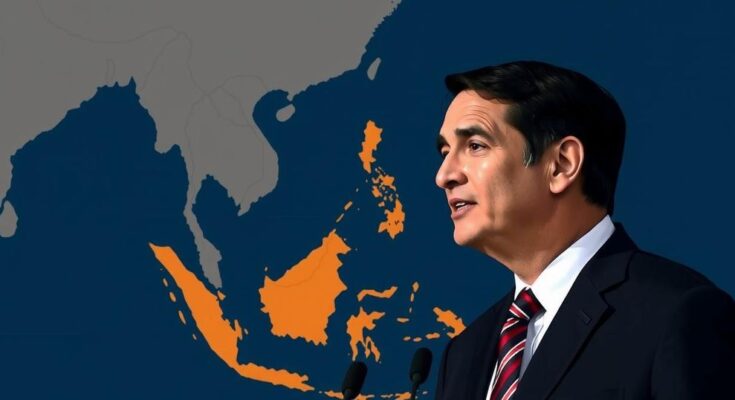Senator Marco Rubio’s potential appointment as Secretary of State signifies hope for Southeast Asian human rights. His history of advocating against authoritarian regimes and promoting democracy aligns with a growing recognition of the importance of values in foreign policy. With an interventionist approach, Rubio may reshape U.S. diplomacy to balance strategic interests with a stronger emphasis on human rights in the region.
The nomination of Senator Marco Rubio as Secretary of State by President-elect Donald Trump ignites significant optimism for Southeast Asian democracies facing authoritarian struggles. With a longstanding commitment to human rights, Rubio has actively supported numerous legislative efforts, such as the Cambodia Democracy and Human Rights Act and the Vietnam Human Rights Sanctions Act, both aimed at holding oppressive regimes accountable. Rubio’s stance against dictatorships has been consistent; he fiercely criticized the Obama administration’s approach to Myanmar and championed sanctions against its military regime, which he labeled as perpetrating genocide. Known as a staunch critic of China, he has also sponsored multiple bills condemning human rights abuses under Communist regimes, demonstrating a complex understanding of international relations—the need for America to hold its allies accountable while responding to the rising influence of authoritarian powers like China. Should Rubio assume the role of top diplomat, his extensive interaction with dissidents and opposition figures in Southeast Asia could influence a more principled foreign policy. Rather than merely pursuing transactions with autocrats, he could remind U.S. leaders of their responsibility to embody a commitment to global liberty alongside strategic interests. This balancing act, combined with his interventionist tendencies, sets the stage for a potentially transformative approach to U.S. diplomacy in the region. Under his guidance, the U.S. may seek not just to contain its adversaries but to champion human rights, enabling hope to flourish amidst oppressive landscapes.
The backdrop of this discussion centers on the pivotal role of U.S. foreign policy in Southeast Asia, particularly amid growing authoritarianism within the region. Historical patterns reveal a complicated relationship between the U.S. and Southeast Asian states where the balance between strategic alliances and human rights advocacy often creates tension. Rubio’s nomination signals a potential shift towards a more values-driven diplomacy—reflecting a deepening understanding that fostering democracy is essential for long-term stability and global order.
In summary, Rubio’s nomination as Secretary of State could herald a new chapter for U.S. engagement in Southeast Asia. His robust history of supporting human rights legislation combined with critical views of authoritarian regimes presents an opportunity for the U.S. to pursue a nuanced foreign policy that prioritizes morality alongside strategy. By empowering dissidents and insisting on accountability from partners, Rubio may not only influence U.S. relations but also inspire hope across Southeast Asia’s embattled democracies.
Original Source: www.rfa.org



